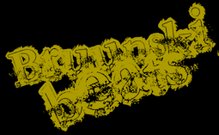 Mastodon's fourth album "Crack the Skye" was released on March 24, 2009 as a normal version and a deluxe version (which includes all songs in instrumental versions as well as their normal versions). The album is produced by Brendan O'Brien and Scott Kelly of Neurosis returns as a guest musician on the title-track. While the lyrics have been reported to explore topics relating to Czarist Russia, the band has denied the album is about Grigori Rasputin. These rumors started after a drawing of Rasputin was featured in merchandise. The band had debuted three new tracks at the Bonnaroo Music Festival, but did not play anymore live before the album's release, due to fears of internet distribution and wanting to play the songs to the right audience. In a MusicRadar interview, guitarist Bill Kelliher confirmed the album is about an "out of body experience," and looks at the concepts of astral travel, wormholes, Stephen Hawking's theories and the spiritual realm. Drummer Brann Dailor has a section of vocals on the song "Oblivion" following the intro and chorus. The band has announced they will play the album in its entirety incorporating a stage show on their upcoming tour.
Mastodon's fourth album "Crack the Skye" was released on March 24, 2009 as a normal version and a deluxe version (which includes all songs in instrumental versions as well as their normal versions). The album is produced by Brendan O'Brien and Scott Kelly of Neurosis returns as a guest musician on the title-track. While the lyrics have been reported to explore topics relating to Czarist Russia, the band has denied the album is about Grigori Rasputin. These rumors started after a drawing of Rasputin was featured in merchandise. The band had debuted three new tracks at the Bonnaroo Music Festival, but did not play anymore live before the album's release, due to fears of internet distribution and wanting to play the songs to the right audience. In a MusicRadar interview, guitarist Bill Kelliher confirmed the album is about an "out of body experience," and looks at the concepts of astral travel, wormholes, Stephen Hawking's theories and the spiritual realm. Drummer Brann Dailor has a section of vocals on the song "Oblivion" following the intro and chorus. The band has announced they will play the album in its entirety incorporating a stage show on their upcoming tour.Mastodon is a Grammy-nominated heavy metal band and are one of the most notable bands in the New Wave of American Heavy Metal. They formed in 1999 in Atlanta, Georgia by Brann Dailor, Bill Kelliher, Troy Sanders, Brent Hinds and original vocalist Eric Saner. They have released four full-length albums and have toured worldwide, achieving increased album sales and an ever expanding fan base with each new release.
Mastodon was formed in late 1999 when drummer Brann Dailor and guitarist Bill Kelliher moved to Atlanta and met bassist/singer Troy Sanders and guitarist/singer Brent Hinds at a High on Fire show. They discovered they had a mutual appreciation of sludge metal bands Melvins and Neurosis and '70s hard-rockers Thin Lizzy, and shortly thereafter formed Mastodon.
They recorded a demo in 2000, which featured the band's first lead singer, Eric Saner on vocals.[10] Saner left the band for personal reasons after just a couple of months. After recording a four song demo and a 7-inch picture disc through Reptilian Records, Mastodon landed a record deal with Relapse Records in 2001.[10] They released an EP, Lifesblood in 2001 and their first full-length album, Remission, was released in 2002, with the single "March of the Fire Ants."[10] (which also featured on Tony Hawk's Underground) On the first three of Mastodon's full-length albums, the last track of each relates to the Elephant Man.
Mastodon has gained additional mainstream exposure with the explosion of rhythm-based home video games. "Sleeping Giant" was made available as a downloadable song for Guitar Hero III: Legends of Rock, and "Colony of Birchmen" was included on Harmonix's Rock Band 2. "Blood and Thunder" will also be part of Guitar Hero: Metallica. Mastodon also contributed a cover version of Harry Nilsson's "One" for the video game Army of Two's advertisement campaign. The band members are fans of Aqua Teen Hunger Force, and in 2007, Mastodon performed the opening song of Aqua Teen Hunger Force Colon Movie Film for Theaters, "Cut You Up with a Linoleum Knife".
Source: Wikipedia
Tracklist: 1. Oblivion, 2. Divinations, 3. Quintessence, 4. The Czar (I. Unsurper, II. Escape, III. Martyr, IV. Spiral), 5. Ghost of Karelia, 6. Crack the Skye, 7. The Last Baron.
Download (110 Mb): Megaupload
Mastodon Website / Mastodon @ MySpace / Mastodon @ Wikipedia / Crack the Skye @ Wikipedia

